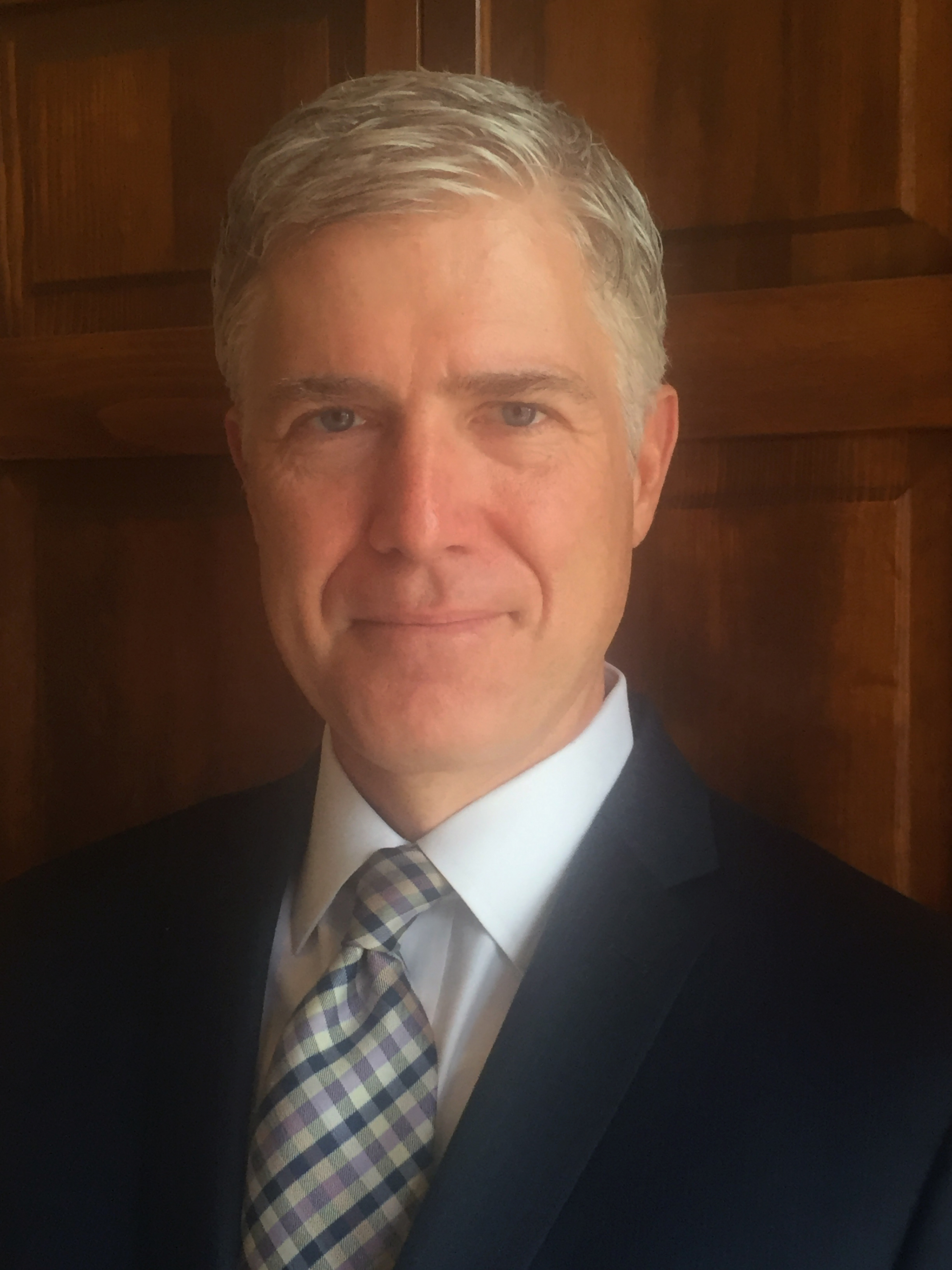Neil Gorsuch, named Tuesday as President Donald Trump’s nominee for the U.S. Supreme Court, is known for his clear, colloquial writing, advocacy for court review of government regulations, defense of religious freedom and skepticism toward law enforcement.
Gorsuch is a Colorado native who earned his bachelor’s degree from Columbia University in three years, then earned a law degree from Harvard. He clerked for Supreme Court Justices Byron White, a fellow Coloradan, and Anthony Kennedy before earning a philosophy degree at Oxford University and working for a prominent Washington, D.C., law firm.
He served for two years in President George W. Bush’s Justice Department before Bush appointed him to a seat on the Denver-based 10th Circuit Court of Appeals in 2006.
He is the son of Anne Gorsuch, who served as EPA administrator during the Reagan administration.
Gorsuch has contended that courts give too much deference to government agencies’ interpretations of statutes, a deference that stems from a Supreme Court ruling in a 1984 case. He sided with two groups that successfully challenged the Obama administration’s requirements that employers provide health insurance that includes contraception.
David Lane, a prominent Denver plaintiff’s attorney who frequently clashes with law enforcement, praised Gorsuch as fair and open-minded. Lane won a $1.8 million jury verdict against the Denver Police Department in a brutality and wrongful arrest case. The city appealed and the case ended up before Gorsuch. Lane said the judge tore into the city’s lawyers and urged them to go to mediation rather than drag out appeals for years to deny the plaintiffs their reward. The mediation led the case to be settled for $1.6 million.
“He is a very, very smart man. His leanings are very conservative, but he’s qualified to be on the Supreme Court,” Lane said. “I don’t know that Judge Gorsuch has a political agenda and he is sincere and honest and believes what he writes.”
Rebecca Love Kourlis, a former Colorado Supreme Court justice, said Gorsuch has written 175 majority opinions and 65 concurrences or dissents in his decade on the 10th Circuit.
“He’s really earned his stripes,” she said.
Kourlis said Gorsuch is also a notable advocate for simplifying the justice system to make it more accessible. “Legal services in this country are so expensive that the United States ranks near the bottom of developed nations when it comes to access to counsel in civil cases,” Gorsuch wrote in an article in a journal for judges last year. “The real question is what to do about it.”
The article is written in Gorsuch’s characteristic, straightforward style.
“He thinks it’s really important for people other than lawyers to understand what he’s writing,” Kourlis said.
Gorsuch is also an avid skier, fly fisherman and horseback rider, Kourlis said. He teaches at the University of Colorado’s law school in Boulder.
“He is humble, he is extremely articulate and he is extraordinarily hardworking,” Kourlis said.
In his financial disclosure report for 2015, he reported assets ranging from $3.1 million to $7.25 million. He earned $26,000 for his law school duties and another $5,300 in book royalties that year.

